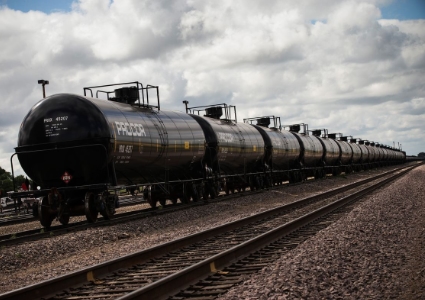Polling

Suggest an important issue not listed in this sub-category (). (Maximum 60 Characters)
Oil trains

Oil transport trains have been involved in several fiery accidents that were caused by excessive speed, driver error, poor track conditions and inadequately-constructed tank cars. Most of the tank cars on our rails today are older, general-purpose tankers known as DOT-111s, each with a capacity of 34,500 gallons. For over 25 years, the National Transportation Safety Board has warned these cars are inadequate for transporting volatile liquids such as ethanol and Bakken crude oil, saying its steel shell is too thin to withstand puncturing during derailments, and its valves are prone to breaking off during rollovers. Newer model tank cars that were supposed to be safer have failed in every major oil and ethanol train derailment they have been involved in to date.
In 2013, a runaway train carrying Bakken crude in DOT-111 cars derailed in Lac-Mégantic, Quebec igniting an inferno that destroyed the city’s downtown and killed 47 residents – a reminder of the risks this industry poses to the 25 million people living along the tracks these oil trains traverse. Due the decreasing price of crude oil caused by worldwide oversupply many railway oil tank cars filled with surplus volatile crude oil are now being stored on train tracks in rural areas for extended periods of time.
Proposed Legislation: Reintroduction of H.R.2289 - Freight RAILCAR Act of 2021
Prospective Sponsor: Rep. Bradley Schneider (IL)
In 2013, a runaway train carrying Bakken crude in DOT-111 cars derailed in Lac-Mégantic, Quebec igniting an inferno that destroyed the city’s downtown and killed 47 residents – a reminder of the risks this industry poses to the 25 million people living along the tracks these oil trains traverse. Due the decreasing price of crude oil caused by worldwide oversupply many railway oil tank cars filled with surplus volatile crude oil are now being stored on train tracks in rural areas for extended periods of time.
Proposed Legislation: Reintroduction of H.R.2289 - Freight RAILCAR Act of 2021
Prospective Sponsor: Rep. Bradley Schneider (IL)
Poll Opening Date
February 6, 2023
Poll Closing Date
February 12, 2023
Democracy Rules respects the privacy of your information.
See PRIVACY STATEMENT
See PRIVACY STATEMENT